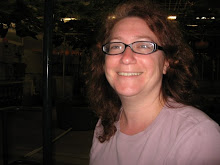Breastfeeding during a natural disaster
When an Emergency Strikes Breastfeeding Can Save Lives
FOR IMMEDIATE RELEASE
September 1, 2005 ( Schaumburg , IL ) When an emergency occurs, such as the recent Hurricane Katrina in the Gulf Coast, breastfeeding saves lives.
Breastfeeding protects babies from the risks of a contaminated water supply. It provides protection against respiratory illnesses and diarrhea--diseases that can be fatal in populations displaced by disaster.
The basics of breastfeeding during an emergency are much the same as they are in normal times. Continuing to breastfeed whenever the baby seems hungry maintains a mother's milk supply and provides familiar comfort. The release of hormones while a mother is breastfeeding relieves stress and anxiety and is calming to both mother and baby.
IF A MOTHER HAS JUST GIVEN BIRTH
If it is within even five days of the birth a mother can have a full milk supply quickly by putting the baby to the breast immediately and breastfeeding the baby, every two to three hours or more frequently. Breast milk is 87% water, so the mother should drink to thirst plus a little bit more. Drinking too much water is not recommended as the mother will be uncomfortable and no additional milk will be produced.
RELACTATION INFORMATION
If a mother has not just recently given birth, but it is up to six months after birth she can relactate by putting baby to the breast, or express the breast, every two hours. Initially she may be producing only drops per day. Her milk will increase by about one ounce every 24 hours. Mother then decreases the amount of formula, or donated human milk from another mother, by about one ounce a day. The younger the baby the sooner it will be to establish a full milk supply.
For more information on breastfeeding during an emergency, check out the La Leche League Web site.
La Leche League Leaders are trained community volunteers who answer questions about breastfeeding. To contact a LLL Leader in the US go to: http://www.lalecheleague.org/WebUS.html or call 800 LA LECHE, Option 4.
Since 1956 La Leche League International, a nonprofit organization now in over 60 countries, has helped mothers worldwide to breastfeed through mother-to-mother support, encouragement, and education. (www.lalecheleague.org or 800 LA LECHE).
FOR IMMEDIATE RELEASE
September 1, 2005 ( Schaumburg , IL ) When an emergency occurs, such as the recent Hurricane Katrina in the Gulf Coast, breastfeeding saves lives.
Breastfeeding protects babies from the risks of a contaminated water supply. It provides protection against respiratory illnesses and diarrhea--diseases that can be fatal in populations displaced by disaster.
The basics of breastfeeding during an emergency are much the same as they are in normal times. Continuing to breastfeed whenever the baby seems hungry maintains a mother's milk supply and provides familiar comfort. The release of hormones while a mother is breastfeeding relieves stress and anxiety and is calming to both mother and baby.
IF A MOTHER HAS JUST GIVEN BIRTH
If it is within even five days of the birth a mother can have a full milk supply quickly by putting the baby to the breast immediately and breastfeeding the baby, every two to three hours or more frequently. Breast milk is 87% water, so the mother should drink to thirst plus a little bit more. Drinking too much water is not recommended as the mother will be uncomfortable and no additional milk will be produced.
RELACTATION INFORMATION
If a mother has not just recently given birth, but it is up to six months after birth she can relactate by putting baby to the breast, or express the breast, every two hours. Initially she may be producing only drops per day. Her milk will increase by about one ounce every 24 hours. Mother then decreases the amount of formula, or donated human milk from another mother, by about one ounce a day. The younger the baby the sooner it will be to establish a full milk supply.
For more information on breastfeeding during an emergency, check out the La Leche League Web site.
La Leche League Leaders are trained community volunteers who answer questions about breastfeeding. To contact a LLL Leader in the US go to: http://www.lalecheleague.org/WebUS.html or call 800 LA LECHE, Option 4.
Since 1956 La Leche League International, a nonprofit organization now in over 60 countries, has helped mothers worldwide to breastfeed through mother-to-mother support, encouragement, and education. (www.lalecheleague.org or 800 LA LECHE).


0 Comments:
Post a Comment
<< Home